In
Za’atri Refugee Camp in Jordan, the seventh largest refugee camp in the world and host to nearly 80,000 Syrian refugees, we combined with The Arsenal Foundation to empower and protect children through football. “Coaching For Life” creates a unique program to improve the mental wellbeing of children affected by conflict and violence. Over the last seven years, millions of children have been caught in the crossfire of the brutal war in Syria, witnessing horrors that no child should ever see. Former Arsenal captain Per Mertesacker visited Za’atari:
“The young people I met focus on what is happening now and this project will give them courage to cope with the struggles they face day to day, as well as providing them with the skills to have a better future.”
The program is also running in Indonesia’s city slums where thousands of children are at risk of exploitation and violence. Five pitches have been built in Za’atari Refugee Camp and seven pitches have been built in Jakarta. The project aims to reach 4,500 girls and boys over three years and the programme consists of seven coaching modules which will run over 20 week cycles.
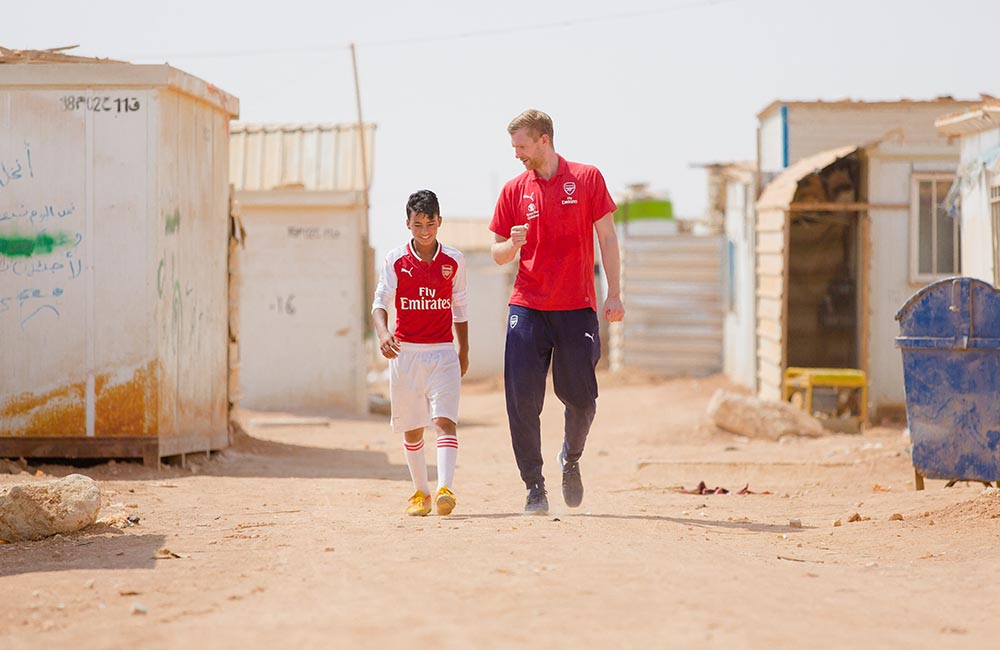 Image: Charlie Forgham-Bailey/Save the Children
Image: Charlie Forgham-Bailey/Save the Children
Among the children Per met was 15 year-old Mohammad. Mohammad has been living in the camp for 6 years after fleeing Syria when he was just 9 years-old.
Mohammad said:
“I love playing football, I forget everything when I’m on the pitch. Meeting Per has been a dream. Football teaches me respect and I’m excited to learn more skills from the coaches.”
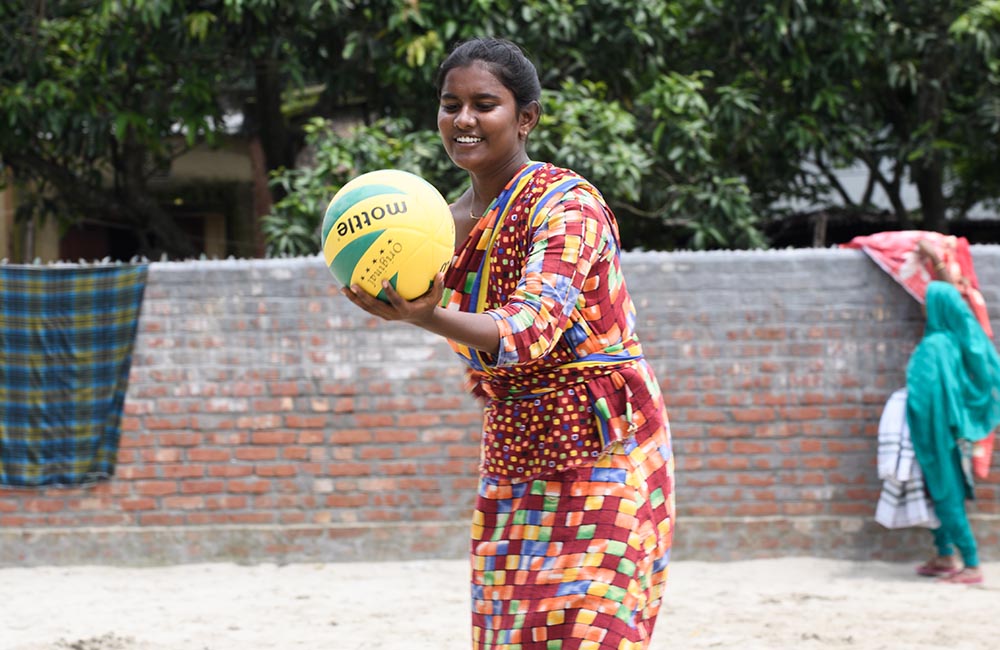 Image: Mats Lignell/Save the Children
Image: Mats Lignell/Save the Children
In Bangladesh and Ethiopia, the “I Play, I Learn and I’m Safe” program works with children particularly vulnerable to unsafe migration. The centres are part of a project supported by the IKEA Foundation, part of their Let’s Play for Change campaign. For many children, migration promises the chance of a better life and an opportunity to find work and education. However, once children move, they become highly vulnerable to discrimination, violence, abuse and exploitation, both during their journey and at their destination. Within this program, children are given the opportunity to play team sports such as volleyball and table tennis.
Nitu, 13 years old, in Rajshahi in north-western Bangladesh: “I’m surprised to find that I have great volleyball skills and I’m very happy about it,” Nitu says. “It has become my favourite sport. My parents wouldn’t let me go outside to play, but here at the centre I can, and I love it.”
Sport is a universal language
Often we use sport as a tool to bring a semblance of normality back into a child’s life when they are placed in a situation that could be described as anything but normal. When a natural disaster strikes and a child is displaced from their home or their family, playing sport and games with other children can help them to cope with the most difficult of situations.
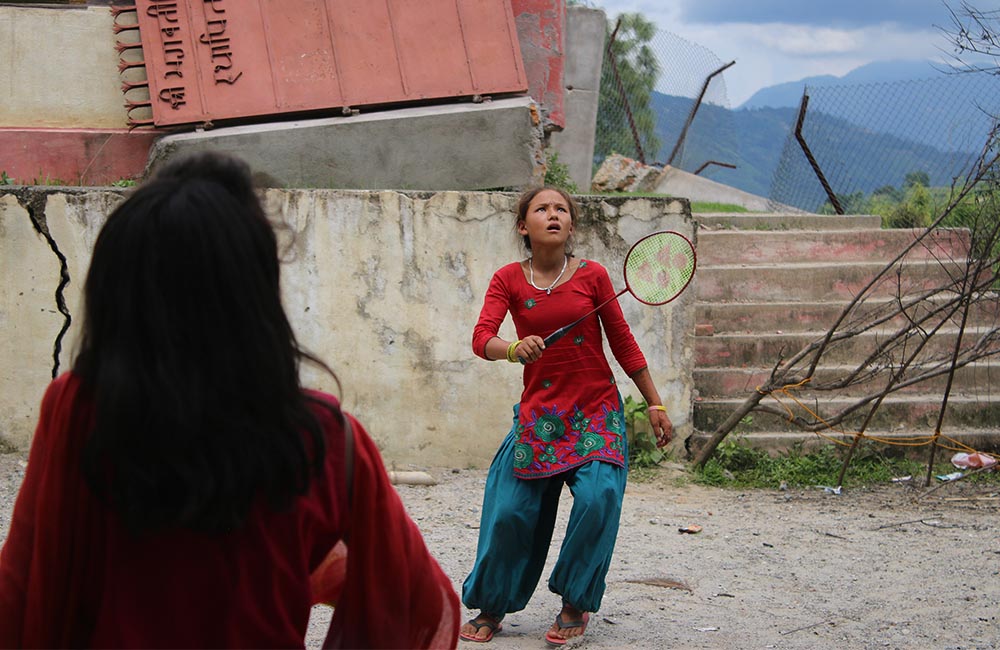
Image: Save the Children
Kalpana* was at home when aa 7.8 magnitude earthquake struck Nepal. She was frightened to feel the earth shake and dismayed when she witnessed neighbouring houses tremble and collapse. Thankfully her family were safe but her home cannot be lived in and her school also badly damaged. After the earthquake Kalpana went to a Temporary Learning Centre and felt safe and happy about being able to go back to school again. She also attended a Child Friendly Space where her favourite activity is playing badminton.
Tunnel Ball in the aftermath of a volcano
In late 2017, the entire population of Ambae, a small island in the north of Vanuatu, was
evacuated after the Manaro Voui volcano rumbled to life and rained rock and ash on villages. The majority of the 11,000 people evacuated were sent to the nearby island of Santo Espiritu where they were housed in evacuation centres and host communities. Save the Children ran child friendly spaces in these centres, where children could play and feel safe despite the chaos going on around them.
One of the most popular activities was the sport of Tunnel Ball, a game in which two teams line up with their legs standing apart to form a tunnel. The player at the end of the line turns to face the other way and stands with their knees bent and their head down looking for the ball as it comes through the legs.
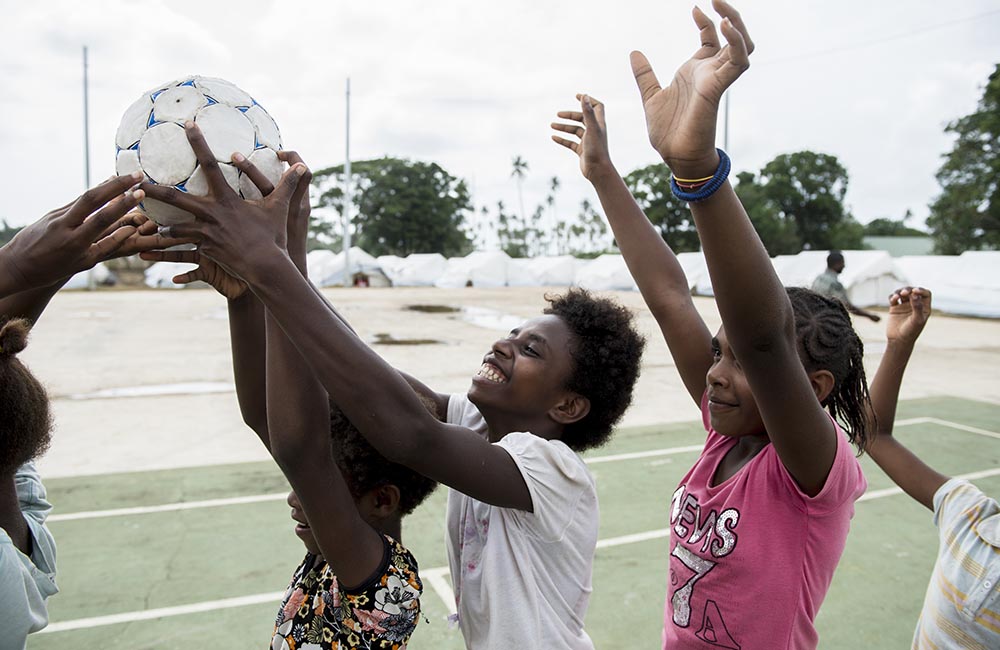 Image: Rob McKechnie/Save the Children
Image: Rob McKechnie/Save the Children
Once the ball has reached the end, that player picks up the ball and runs to the start of the line and starts to roll the ball through the tunnel of legs again. The game continues until all players have had a turn and the fastest team wins. Much fun had by all!
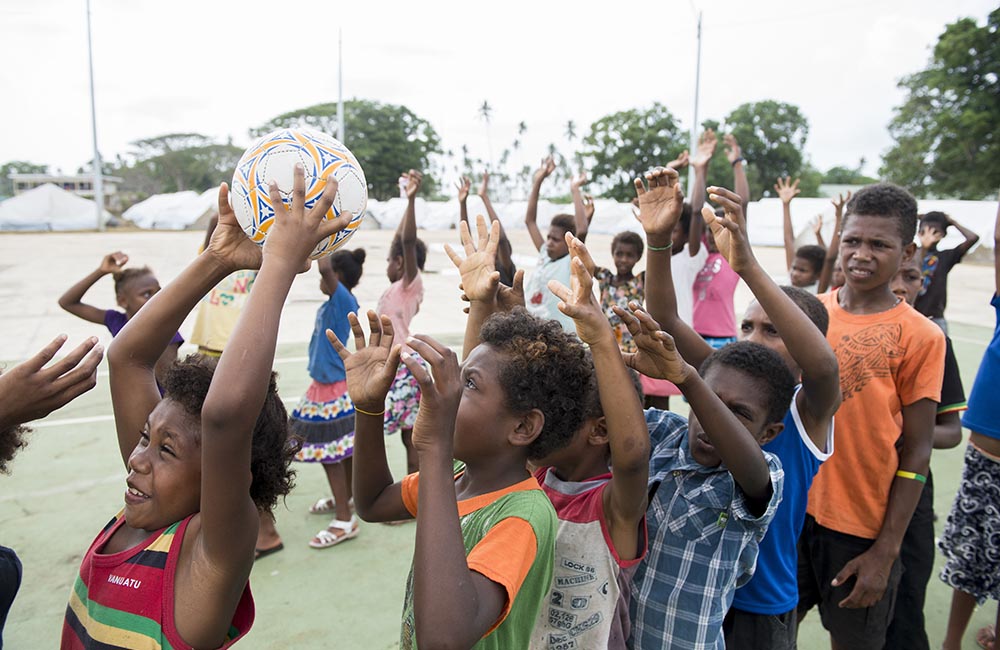 Image: Rob McKechnie/Save the Children
Image: Rob McKechnie/Save the Children